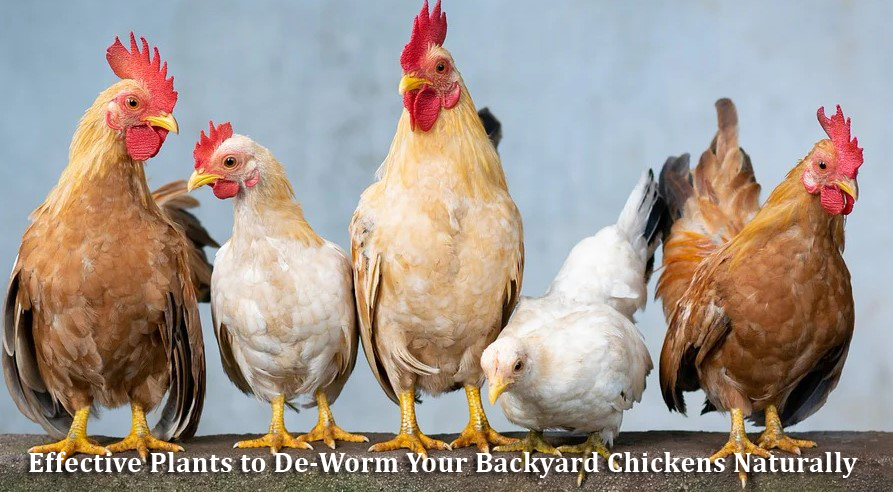
One of the most common challenges poultry enthusiasts face is dealing with pesky internal worms that threaten the health and vitality of their flock. Chemical dewormers, although effective, often come with a slew of side effects and concerns about the long-term health implications for the birds and the potential residue in the eggs.
How can one ensure a worm-free flock without compromising natural and organic principles? The answer might just lie in the heart of nature, with plants that offer powerful, natural deworming properties. So, in this article, we have listed the effective plants that can help keep your backyard chickens healthy and worm-free naturally.
Signs that Chickens Might Have Worms or Internal Parasites
- One of the most noticeable signs can be a sudden drop in egg production. Infested hens might lay fewer eggs than usual.
- Even if the chicken eats its regular feed, it might still lose weight because the worms consume the nutrients.
- A chicken’s comb and wattles can be good indicators of its health. Worm infestations can lead to anemia, causing the comb and wattles to turn paler or bluish.
- Chickens with internal parasites often have a poor appearance, including ruffled or dull feathers.
- Infested chickens might seem more tired and less active than usual.
- In severe infestations, you might see worms or worm segments in their droppings.
- They might eat more in an attempt to compensate for the nutrients the worms are consuming.
Natural Deworming Plants
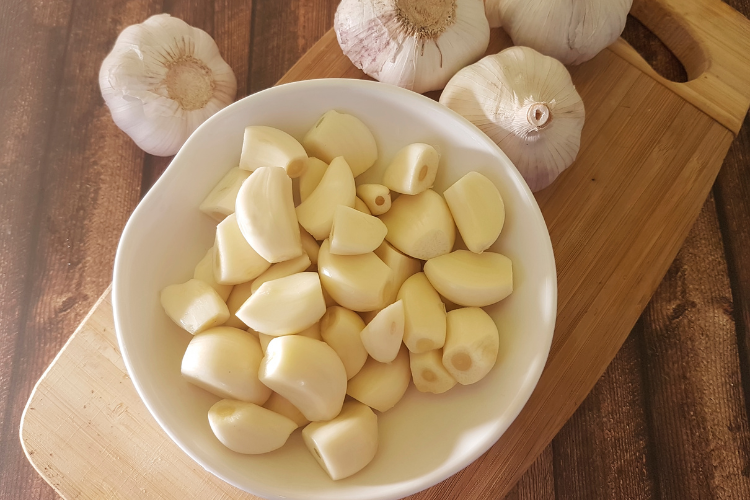 Garlic Garlic
Garlic is a powerhouse in natural poultry care due to its impressive antibacterial properties. Regularly introducing garlic into a chicken's diet not only combats bacterial infections but also bolsters the bird's immune system. This hardy bulb further aids in digestion and can be instrumental in detoxifying a chicken's system.
To harness these benefits, you can crush 2-3 garlic cloves and incorporate them directly into the chicken feed, you can give your adult chickens one clove per day for two weeks to clear up the worm. Another approach involves infusing crushed garlic cloves into the chicken's drinking water, ensuring they get a steady intake. You can do this once a week for prevention.
Grated carrot
Carrots offer more than just a burst of color in our salads. For chickens, they're a vital source of Vitamin A, crucial for maintaining optimal health. Beyond this, the fibrous nature of carrots acts as a natural detoxifier, assisting in expelling worms and other digestive system invaders.
To use carrots as a dewormer, simply grate them and introduce them into the daily feed. Chickens typically enjoy the sweet crunch of a carrot, making this a treat they're likely to relish. If some birds are hesitant, mixing the grated carrots with other preferred treats can be a useful strategy.
Finely chopped onion
While not as universally loved as garlic or carrots, onions are in the natural poultry care toolkit. They boast natural antiparasitic compounds that can aid in eliminating internal worms. Beyond this, their inherent properties can enhance the gut health of birds, promoting better nutrient absorption.
To benefit your flock, finely chop onions and add them to their daily feed. It's crucial, however, to use onions judiciously. An excessive onion diet might alter the taste of the eggs. Consider it more as an occasional treat or supplement rather than a staple.
Wormwood
An age-old remedy, wormwood is traditionally known for its ability to expel parasites, particularly digestive worms, from various animals. Its bitter compounds are believed to create an inhospitable environment for the parasites.
For chickens, introducing dried wormwood to their feed can help in this regard. However, caution is required; excessive consumption can lead to toxicity. Using it in moderation, preferably under expert guidance, can yield the best results.
Hyssop
Hyssop is not only revered for its spiritual symbolism in historical texts but also for its medicinal properties. For poultry, it serves a dual purpose: aiding respiratory health and acting as a natural dewormer. Fresh or dried hyssop can be introduced into the chicken's environment or directly mixed into their feed, serving as a natural remedy against worms and helping to bolster overall health.
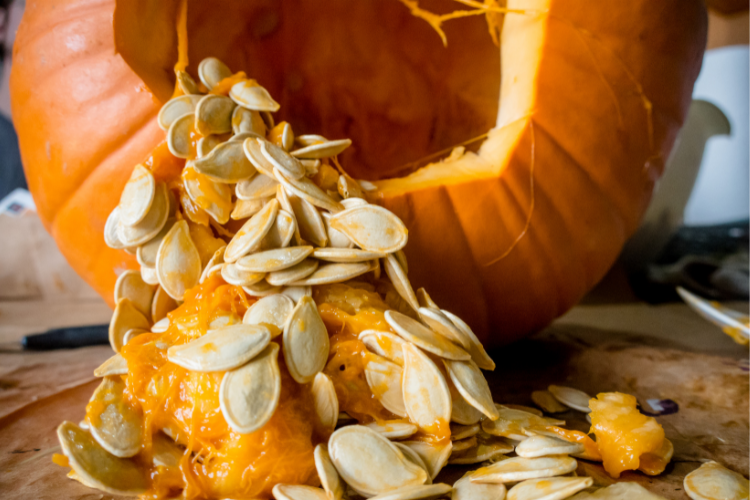 Pumpkin seeds Pumpkin seeds
Pumpkin seeds have become a favorite natural deworming remedy for many poultry keepers. They contain a compound called cucurbitacin, which has the ability to paralyze and eradicate worms from the digestive system.
To use, these seeds can either be fed directly to chickens or can be ground and mixed into their regular feed for two weeks or longer for the best results. It’s a treat many chickens enjoy, and it promotes a worm-free environment.
Cucumber seed
Similar to pumpkin seeds, cucumber seeds contain properties that can act against internal parasites. They can be especially effective against tapeworms. Simply harvesting and drying these seeds and then introducing them to the chicken feed or giving them directly can serve as an effective natural deworming method.
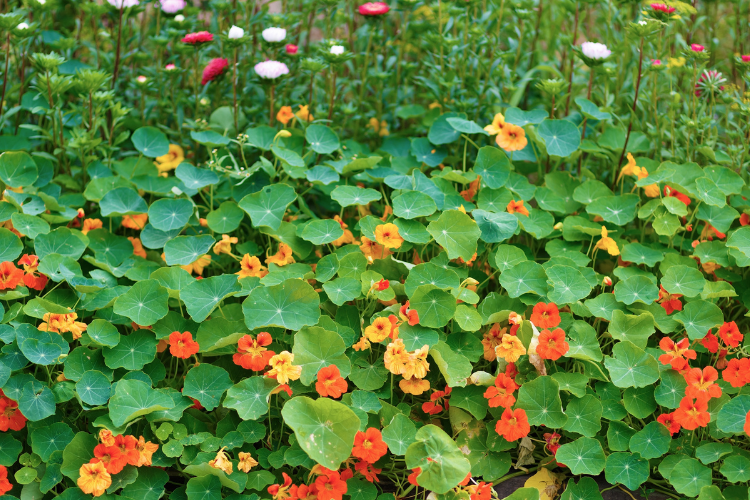 Nasturtium Nasturtium
Nasturtium is one of the best plants to grow for your chicken, with its vibrant flowers and unique taste, it offers more than just aesthetic value. Both its leaves and flowers are believed to have antiseptic and antibacterial properties. When consumed by chickens, nasturtium can create a hostile environment for worms.
Spreading the leaves and flowers in the coop or mixing them with the daily feed can be a great way to introduce this natural remedy to your flock.
Conclusion
For those raising chickens, using plants and seeds to fight against worms is a smart, natural choice. These methods are not only gentle on the birds but also cut down on chemicals. Just like we trust home remedies for our little health troubles, our chickens can benefit from these plant-based solutions too.
However, always keep an eye on your birds to make sure they're happy and healthy, and if in doubt, ask an expert. In the end, using nature's gifts, we can have a healthy coop full of chirpy chickens!
Author’s profile
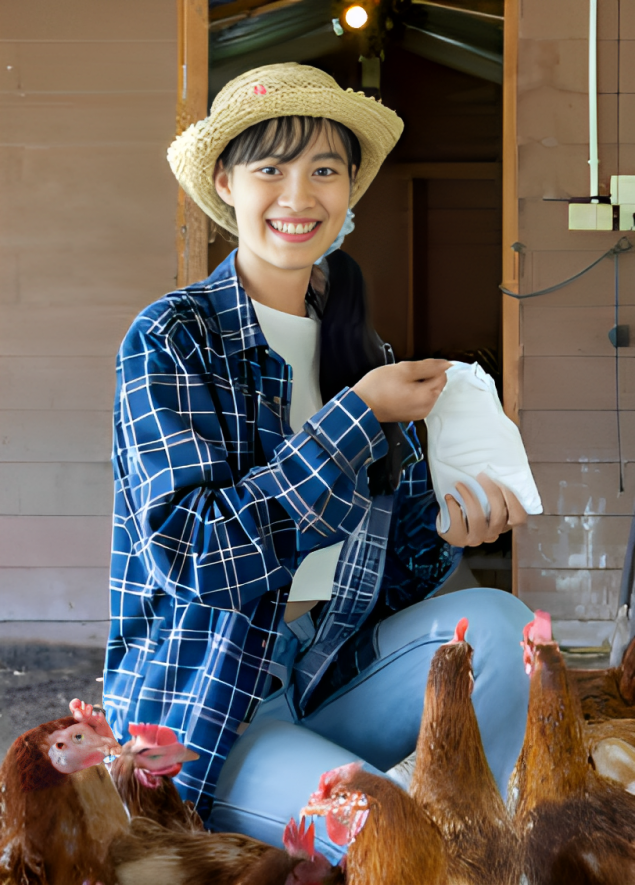 I'm Amelia Quinn, and I'm delighted to introduce myself to this wonderful community. I grew up on a humble little farm where raising animals and cultivating vegetables were not just chores, but a way of life. Our livelihood depended on the fruits of the land and the care we provided to our animals. After school each day, I took on the role of helping care for my younger siblings and tending to our animals. Raising chickens and nurturing crops became an integral part of my daily routine. I'm Amelia Quinn, and I'm delighted to introduce myself to this wonderful community. I grew up on a humble little farm where raising animals and cultivating vegetables were not just chores, but a way of life. Our livelihood depended on the fruits of the land and the care we provided to our animals. After school each day, I took on the role of helping care for my younger siblings and tending to our animals. Raising chickens and nurturing crops became an integral part of my daily routine.
Now, as I embark on this journey of connecting with fellow farmers and enthusiasts, I am excited to share my experiences and learn from the wisdom of other experienced individuals in the farming community. Let's grow together, both in knowledge and as a community.
|